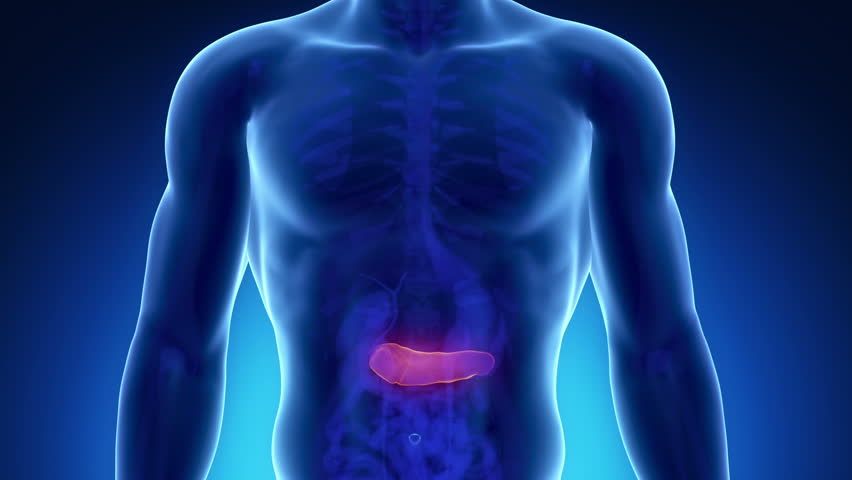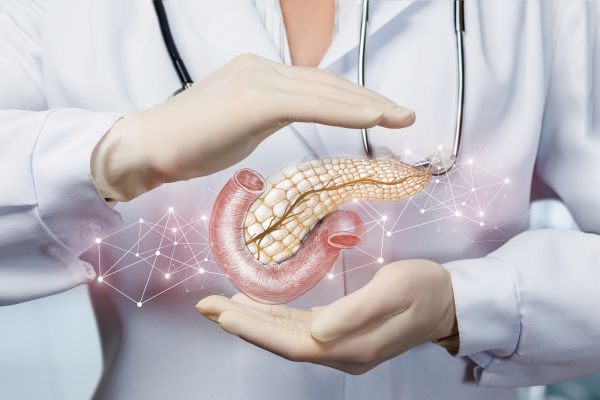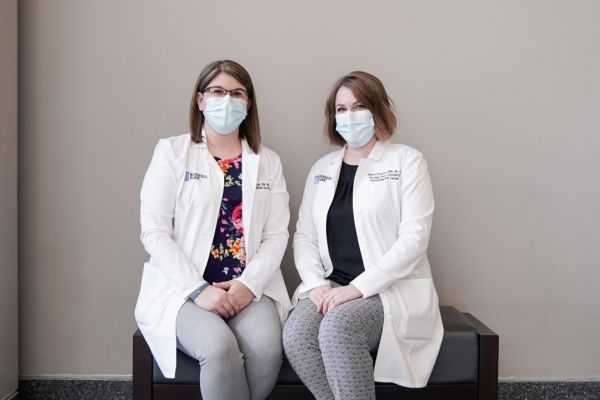The short answer is no — the vast majority of pancreatic cysts do not become cancerous.
What is a pancreatic cyst?
Pancreatic cysts are fluid or mucus-filled structures in the pancreas, like cysts that appear in other parts of the body. “Pancreatic cysts are relatively common,” says Anoop Prabhu, MD, formerly an Associate Professor of Oncology in Endoscopy and Gastroenterology at Roswell Park Comprehensive Cancer Center. “They have been reported to be present in approximately ten percent of the population, are more common in women and more common as we age."
Cysts in the pancreas can arise as a result of several different processes. There are approximately five major types of pancreatic cysts, which are distinguished based upon: how they developed, where they are located, and what they consist of. The cyst type can be determined based on multiple factors, such as appearance of imaging as well as tissue sampling. Cysts that produce mucin, or mucous, are considered pre-cancerous in nature.
The most common cause of benign, or non-cancerous, cysts is pancreatitis — the inflammation of the pancreas, often caused by excessive alcohol use or gallstone disease. Some genetically inherited conditions, such as von Hippel-Lindau syndrome, can predispose a person to develop cysts in the pancreas.
“Cysts that are pre-cancerous may need further evaluation, either via additional dedicated imaging or specialized endoscopic procedures,” Dr. Prabhu says."Even among those cysts that are deemed pre-cancerous, very few of them end up becoming cancer."
How would I know if I have a pancreatic cyst?
Most people do not have any symptoms or pain — pancreatic cysts are usually only discovered incidentally, such as when a person has a CT scan or MRI of the abdomen for another reason.
“The majority of pancreatic cysts are discovered this way and are more likely to be detected now with increased quality of imaging technology,” says Dr. Prabhu. “Because these cysts rarely cause symptoms, other causes of abdominal pain should be excluded before attributing the pain to the cyst.”
Our endoscopy experts
Roswell Park’s Endoscopy Center combines leading-edge technology with minimally invasive techniques to diagnose and treat malignant and benign digestive conditions.
What should I do if I have a pancreatic cyst?
The first step is learning what kind of cyst you have, and whether it poses any further risk to your health. It is critical that patients with pancreatic cysts seek out clinicians who have extensive experience with pancreatic tumors and pancreatic pathology. Closer evaluation of the cyst with specialized MRI or advanced endoscopic imaging such as an endoscopic ultrasound with a possible biopsy may be needed. The clinician will look at certain features in each cyst, such as the size and the presence of any solid components, to determine your risk for the cyst to become cancerous.
Do pancreatic cysts require treatment?
“Most pancreatic cysts do not require treatment,” explains Dr. Prabhu. “For the vast majority, proper treatment is continued observation by an experienced clinician.” This means monitoring of the cysts with imaging or endoscopy (CT scan, MRI, or endoscopic ultrasound), with the frequency of monitoring tailored to the individual characteristics of the cyst. The physician will watch for changes in the cyst — if certain changes are observed over time — such as growth or development of solid components — surgery to remove the cysts may be recommended, which can often be accomplished through a minimally invasive surgical approach.



